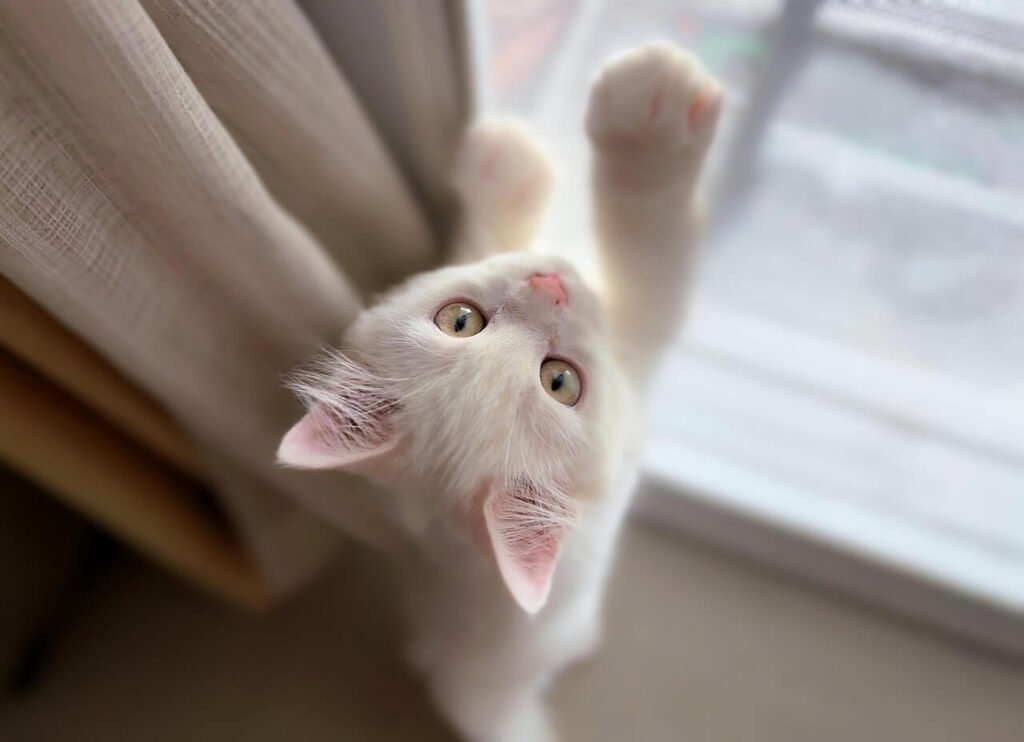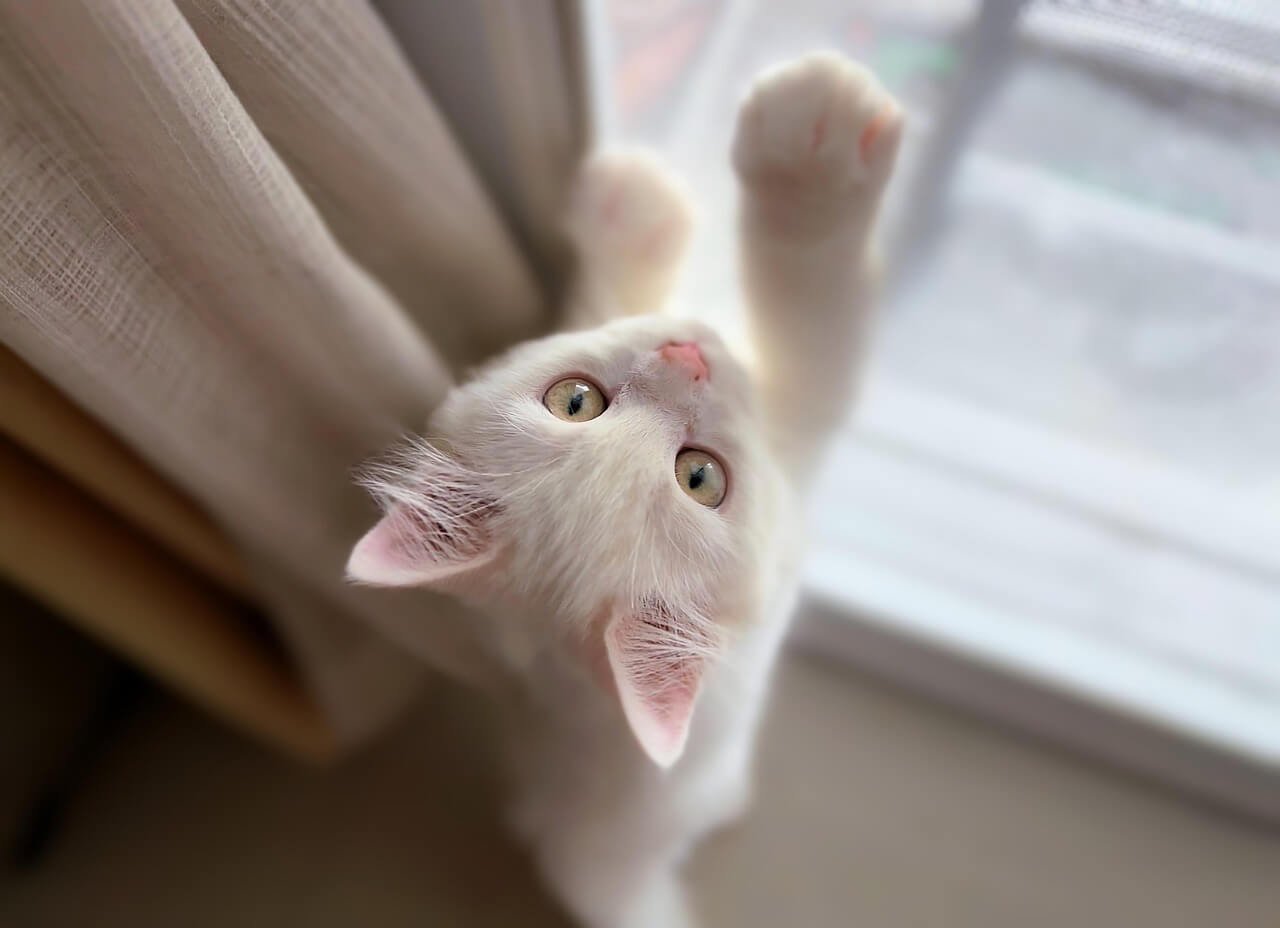Can Cats Get Norovirus from Humans?
Norovirus is a highly contagious illness that causes gastrointestinal symptoms like vomiting, diarrhea, and stomach pain in humans. While it’s commonly associated with outbreaks in schools, cruise ships, and hospitals, many pet owners wonder whether their feline companions can also contract this virus from them. Cats are known for their unique immune systems, but the question remains: can cats get norovirus from humans? In this blog post, we’ll explore the science behind cross-species transmission, discuss preventive measures, and provide practical advice to keep both you and your furry friend healthy.
Understanding Norovirus Transmission Between Species
While norovirus primarily affects humans, understanding how viruses spread between species is essential for assessing the risk to pets like cats. Here’s what you need to know about cross-species transmission.
Species-Specific Nature of Norovirus:
Most strains of norovirus are species-specific, meaning they primarily infect humans or animals within a particular group, such as pigs or rodents.Limited Evidence of Cat Infection:
There is currently no conclusive evidence that cats can contract human norovirus, but research on zoonotic diseases is ongoing.Potential for Indirect Exposure:
Cats may come into contact with contaminated surfaces, such as floors or countertops, where norovirus particles can persist for days.Shared Environments Increase Risk:
Living in close quarters with an infected human could theoretically expose cats to viral particles, though actual infection is rare.Immune System Differences:
Cats have distinct immune responses that may protect them from certain human pathogens, including norovirus.
While the likelihood of cats contracting norovirus from humans is low, maintaining good hygiene practices is key to minimizing any potential risks.
Symptoms to Watch for in Cats Exposed to Illness
If you’re concerned that your cat may have been exposed to norovirus or another illness, monitoring their behavior and health is crucial. Though cats rarely show symptoms of human norovirus, other conditions can mimic similar signs.
Vomiting or Diarrhea:
Gastrointestinal upset in cats can result from various causes, including dietary changes or infections unrelated to norovirus.Lethargy or Weakness:
A sudden drop in energy levels may indicate your cat is feeling unwell, regardless of the underlying cause.Loss of Appetite:
Cats experiencing nausea or discomfort may refuse food, which can lead to further health complications if untreated.Dehydration:
Look for signs like sunken eyes, dry gums, or reduced skin elasticity, which suggest your cat isn’t drinking enough water.Behavioral Changes:
Cats often hide when they’re sick, so unusual withdrawal or aggression may signal an issue requiring veterinary attention.
By staying vigilant and consulting your vet promptly, you can address any health concerns your cat may face, whether related to norovirus or other illnesses.
Check this guide 👉Can Cats Get Strep Throat from Humans? Best 7 Expert Tips!
Check this guide 👉Persian Cat Health Issues: Best 7 Expert Tips!

Preventing Norovirus Spread | Signs Your Cat May Be Unwell |
|---|---|
Wash hands thoroughly after using the bathroom | Vomiting or frequent diarrhea |
Disinfect shared spaces regularly | Lethargy or lack of energy |
Avoid handling pets while sick | Loss of appetite or refusal to eat |
Keep cats away from contaminated areas | Dehydration or dry gums |
Practice good household hygiene | Hiding or unusual behavioral changes |
How to Protect Your Cat During a Norovirus Outbreak
If someone in your household has norovirus, taking precautions can help safeguard your cat’s health. These tips ensure a safe environment for both humans and pets.
Isolate the Infected Person:
Limit physical contact between the sick individual and your cat to reduce the risk of exposure to viral particles.Clean and Disinfect Surfaces:
Regularly sanitize high-touch areas, such as doorknobs, countertops, and litter boxes, to eliminate lingering germs.Wash Bedding and Toys:
Launder your cat’s bedding and wash their toys with hot water and soap to remove any contamination.Avoid Sharing Food or Water Bowls:
Ensure your cat’s food and water bowls are kept clean and separate from areas where the virus may spread.Monitor Your Cat Closely:
Observe your cat for any unusual symptoms, even if the chances of infection are low, and consult your vet if needed.
By implementing these measures, you can minimize potential risks and maintain a healthy living space for everyone in your home.
Common Myths About Cats and Human Viruses
Misconceptions about cats contracting human illnesses abound, leading to unnecessary worry or misinformation. Let’s debunk some common myths surrounding this topic.
Myth: Cats Can Easily Catch Human Viruses:
Fact: Cats have different biological systems that make them resistant to most human-specific pathogens, including norovirus.Myth: Sharing Utensils Puts Cats at Risk:
Fact: While sharing utensils isn’t ideal, the primary concern is more about bacteria than viruses like norovirus.Myth: All Gastrointestinal Issues Are Contagious:
Fact: Many causes of vomiting or diarrhea in cats are unrelated to human illnesses and stem from dietary or environmental factors.Myth: Vaccines Prevent Human Viruses in Cats:
Fact: Vaccinations target specific feline diseases and do not protect against human viruses like norovirus.Myth: Cats Spread Human Norovirus to Others:
Fact: There’s no evidence that cats act as carriers or transmitters of human norovirus.
Understanding these facts helps alleviate fears and promotes informed decision-making about pet care.
Hygiene Practices to Prevent Cross-Species Illness
Maintaining proper hygiene is vital for preventing the spread of illnesses between humans and pets. These practices not only protect your cat but also promote overall household wellness.
Regular Handwashing:
Wash your hands with soap and water after handling pets, especially during illness outbreaks.Use Separate Towels:
Avoid sharing towels or cloths between humans and pets to reduce germ transfer.Sanitize Pet Supplies:
Regularly clean items like food bowls, litter boxes, and grooming tools to prevent contamination.Limit Close Contact When Sick:
Minimize cuddling or kissing your cat if you’re unwell to avoid exposing them to pathogens.Educate Family Members:
Ensure everyone in the household understands the importance of hygiene in protecting pets.
By adopting these habits, you create a healthier environment for both humans and animals alike.
Common Illnesses That Do Affect Cats
While norovirus isn’t a significant threat to cats, other illnesses can impact their health. Being aware of these conditions helps you identify and address problems early.
Feline Panleukopenia (Parvovirus):
A highly contagious viral disease causing vomiting, diarrhea, and fever in cats.Upper Respiratory Infections:
Similar to human colds, these infections lead to sneezing, nasal discharge, and lethargy.Feline Leukemia Virus (FeLV):
A retrovirus that weakens the immune system, increasing susceptibility to other diseases.Toxoplasmosis:
A parasitic infection that can affect cats and humans, though transmission requires specific conditions.Hairballs and Digestive Blockages:
Non-infectious issues caused by grooming habits, leading to vomiting or constipation.
Recognizing these illnesses empowers you to take swift action and seek professional care when necessary.
Strengthening Your Cat’s Immune System
A strong immune system is your cat’s best defense against illnesses, whether viral, bacterial, or environmental. Here are ways to boost your cat’s overall health and resilience.
Provide a Balanced Diet:
Feed high-quality cat food rich in essential nutrients to support immune function and vitality.Schedule Routine Vet Checkups:
Regular examinations help detect potential health issues before they become severe.Encourage Exercise and Play:
Physical activity strengthens muscles, improves circulation, and enhances mental well-being.Minimize Stressful Situations:
Create a calm, predictable environment to reduce stress, which can weaken immunity.Administer Preventive Medications:
Stay up-to-date on vaccinations, parasite control, and dental care to prevent common ailments.
Investing in your cat’s health today lays the foundation for a happy, healthy life tomorrow.
Frequently Asked Questions About Cats and Norovirus
Can I pass norovirus to my cat through touch?
The risk is extremely low, as norovirus is species-specific, but practicing good hygiene minimizes any theoretical risk.
What should I do if my cat shows symptoms of illness?
Contact your veterinarian immediately to rule out serious conditions and receive appropriate treatment.
How long does norovirus live on surfaces?
Norovirus can survive on surfaces for days, highlighting the importance of thorough cleaning and disinfection.
Can cats carry norovirus without showing symptoms?
There’s no scientific evidence supporting this possibility, but maintaining cleanliness is always wise.
Are kittens more vulnerable to human viruses?
Kittens have weaker immune systems, making them more susceptible to infections overall, but norovirus remains unlikely.
Keeping Your Furry Friend Safe Amidst Human Illnesses
While the likelihood of cats contracting norovirus from humans is minimal, staying informed and proactive ensures peace of mind for pet owners. By practicing good hygiene, monitoring your cat’s health, and seeking veterinary advice when needed, you can create a safe and supportive environment for your beloved companion. Remember, knowledge is power—understanding the boundaries between human and animal health allows you to enjoy a harmonious life with your feline friend, free from unnecessary worry.
Canned Pumpkin for Cat Diarrhea: Best 7 Expert Tips! Natural remedy to firm stools, soothe upset bellies, and support gut health safely.
Can a Cat Give You Scabies? Best 7 Expert Tips! Discover the truth about feline mites, human skin risks, and how to protect yourself—without panic.
Cat Flea vs Human Flea: Best 7 Expert Tips! Discover the truth about bites, species, and how to eliminate infestations for good.
Weird Cat Behaviors: Best 7 Expert Tips! Discover why cats do strange things—and how to understand, not punish, their instincts for a happier home.





